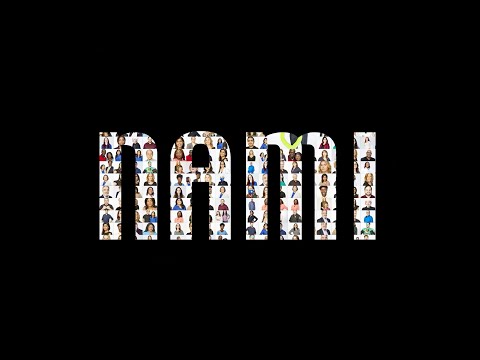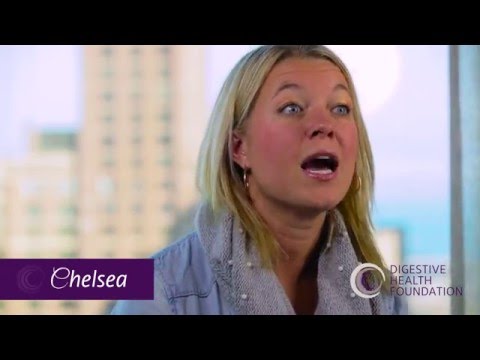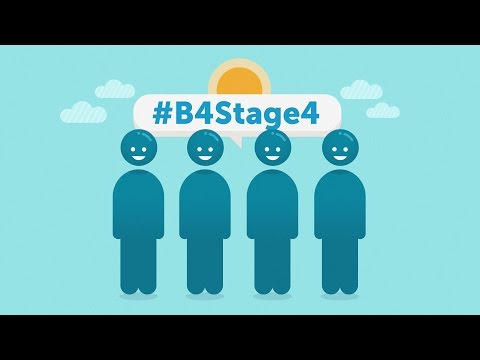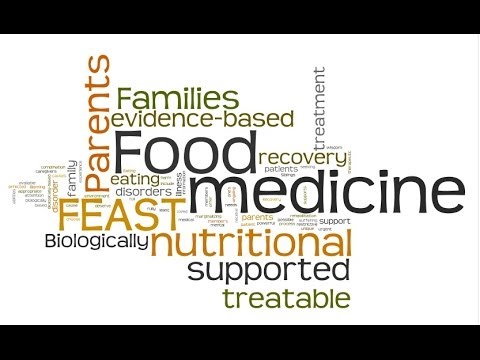9 Best Charities That Combat Rumination Disorder (Complete 2024 List)
Affiliate Disclosure
Hey fellow impactful ninja ?
You may have noticed that Impactful Ninja is all about providing helpful information to make a positive impact on the world and society. And that we love to link back to where we found all the information for each of our posts.
Most of these links are informational-based for you to check out their primary sources with one click.
But some of these links are so-called "affiliate links" to products that we recommend.
Why do we add these product links?
First and foremost, because we believe that they add value to you. For example, when we wrote a post about the environmental impact of long showers, we came across an EPA recommendation to use WaterSense showerheads. So we linked to where you can find them. Or, for many of our posts, we also link to our favorite books on that topic so that you can get a much more holistic overview than one single blog post could provide.
And when there is an affiliate program for these products, we sign up for it. For example, as Amazon Associates, we earn from qualifying purchases.
What do these affiliate links mean for you?
First, and most importantly, we still only recommend products that we believe add value for you.
When you buy something through one of our affiliate links, we may earn a small commission - but at no additional costs to you.
And when you buy something through a link that is not an affiliate link, we won’t receive any commission but we’ll still be happy to have helped you.
What do these affiliate links mean for us?
When we find products that we believe add value to you and the seller has an affiliate program, we sign up for it.
When you buy something through one of our affiliate links, we may earn a small commission (at no extra costs to you).
And at this point in time, all money is reinvested in sharing the most helpful content with you. This includes all operating costs for running this site and the content creation itself.
What does this mean for me personally?
You may have noticed by the way Impactful Ninja is operated that money is not the driving factor behind it. It is a passion project of mine and I love to share helpful information with you to make a positive impact on the world and society. However, it's a project in that I invest a lot of time and also quite some money.
Eventually, my dream is to one day turn this passion project into my full-time job and provide even more helpful information. But that's still a long time to go.
Stay impactful,
Approximately 1 in 125 people in the general population experience rumination disorder, a condition in which an individual consistently regurgitates undigested food. And about half of those diagnosed with rumination disorder have co-occurring mental health issues like depression, anxiety, and developmental delay. Fortunately, organizations around the world are working to raise awareness, provide support, and increase access to treatment for people affected by rumination disorder. So, we had to ask: what are the best charities that combat rumination disorder?
The best charities that combat rumination disorder are Children’s Mercy Hospital and the National Alliance on Mental Illness. Charities such as Guts UK and the Brain and Behavior Research Foundation fund innovative research to better understand, treat, and prevent rumination disorder.
Whether you want to help connect someone struggling with rumination disorder with a community of support, participate in crowd-sourced funding to support new research, or ensure that everyone suffering from rumination disorder has access to quality treatment there is a charity for you. Keep reading to learn more about what the best charities that combat rumination disorder are all about, how they work, and what your best way would be to contribute.
Here’s What All the Best Charities That Combat Rumination Disorder Have in Common
The charities on this list were chosen based on their mission, impact, and transparency ratings, and achievements.
The majority operate primarily throughout the US and Canada, but some combat rumination disorder and other eating disorders internationally.
Many of these charities seek to explore the complexities of rumination disorder to develop new and improved treatments, while others facilitate peer support for parents of children affected by the disorder.
Some also provide resources for mental health conditions that commonly co-occur with rumination disorder, such as depression and anxiety, while others focus solely on the physical aspects of the disease.
Yet, they all share a common goal; to combat rumination disorder and help those affected to lead healthier lives.
These Are the 9 Best Charities That Help Combat Rumination Disorder in 2024
Below are our favorite charities that help combat rumination disorder (you can click on their link to directly jump to their section in this article):
Best Charities That Help Combat Rumination Disorder
(At the end of this article we’ll also share our six-step approach on how you can select the best charity to support.)
Children’s Mercy Hospital: Clinical Treatment for Rumination Disorder

🔎
Their transparency & ratings:
Charity Navigator gives Children Mercy Hospital a 4-star rating.
“Clearing the way for every child’s potential.”
Children’s Mercy Hospital
⚒️
What they do:
Children’s Mercy Hospital combats rumination disorder through their Rumination Disorder Clinic; one of the only interdisciplinary programs in the US for teens and children suffering from rumination disorder. Doctors at the Rumination Disorder Clinic assess each patient to identify the underlying causes of their rumination disorder and design a treatment package tailored to their needs. Furthermore, the Children’s Mercy Research Institute funds innovative research to accelerate the development of new treatments for disorders, including rumination disorder. And, they offer continuing education courses to help physicians and clinicians to ensure they can deliver the most advanced care to patients.
🚀
What they’ve achieved:
Since their founding, the Children’s Mercy Hospital has helped thousands of children access quality medical care, including those with rumination disorder. For example, in 2022 alone, they admitted 14,345 patients, provided 8,279 home visits, and treated 66,608 children and teens via telemedicine. Moreover, in 2021, they provided over $11. 9 million in uncompensated services to patients from 16 different countries. Furthermore, their Genomic Answers for Kids initiative has enrolled 4,864 families and 11,413 individuals seeking help for rare genetic diseases since its inception in 2021.
✨
Ways to contribute:
You can donate to Children’s Mercy Hospital via their website. You can also volunteer at the hospital or start a fundraiser.
National Alliance on Mental Illness: Raising Awareness and Providing Resources

🔎
Their transparency & ratings:
Charity Navigator gives the National Alliance on Mental Illness a 4-star rating. GuideStar gives the charity a Platinum rating for transparency.
“Changing the mental health conversation, together.”
National Alliance on Mental Illness
⚒️
What they do:
The National Alliance on Mental Illness improves the lives of those with eating disorders, like rumination disorder, and co-occurring mental health disorders through advocacy, education, support, and public awareness. For example, their education program features classes for people with mental illness as well as stakeholders such as family members, significant others, and providers. They also provide peer support to those seeking guidance and resources via their 24-hour HelpLine. In addition, they provide comprehensive information about mental illnesses commonly seen in childhood including treatment options, and how to cope if you or someone you know is experiencing symptoms of conditions such as rumination disorder.
🚀
What they’ve achieved:
The National Alliance on Mental Illness helps people struggling with their mental health, including rumination disorder, through their network of over 600 affiliates and 49 state organizations across the US. For example, in 2021, they distributed $3.5 million in grants to advance the work of their network and to support more people. In the same year, their annual fundraiser, NAMIWalks Your Way raised $13.1 million across 122 events with over 40,000 participants nationwide. In addition, the charity’s advocacy efforts were integral to the launch of the 988 crisis number, a helpline for those suffering from anxiety, eating disorders, depression, and suicidal thoughts.
✨
Ways to contribute:
You can donate to the National Alliance on Mental Illness via their website. You can also contribute by registering to participate in NamiWalks Your Way or by volunteering to work on the HelpLine.
Guts UK: Fighting All Digestive Disorders

🔎
Their transparency & ratings:
According to their financial report, Guts UK spent 70% of their total income on charitable activities and 30% on fundraising events.
“Our guts have been underfunded, understaffed, and undervalued for decades. Together, we will join forces and bring about important change in this misunderstood area of health.”
Guts UK
⚒️
What they do:
Guts UK increasing public awareness of all gastrointestinal diseases, like rumination disorder, and funds research to improve treatment outcomes for those affected. For example, their website contains comprehensive information on rumination disorder, including symptoms and treatment options. Furthermore, they fund research initiatives to better understand and treat gastrointestinal disorders. And, they run public awareness campaigns to reduce the stigma around digestive disorders and empower people to seek help.
🚀
What they’ve achieved:
Since their founding, Guts UK has funded nearly $20 million in 300 research projects to support treatments and prevention methods for digestive diseases. For example, they have invested in 84 research programs for liver and pancreas illnesses, as well as 30 scientific initiatives for digestive cancers, improving existing medical knowledge. Furthermore, in 2022, they financed $2,3 million in 30 research studies across the UK, supporting 24 researchers in their efforts to treat or prevent various digestive disorders, including rumination disorder.
✨
Ways to contribute:
You can donate to Guts UK on their website. You can also support them by fundraising, purchasing merchandise, or participating in their awareness events.
Brain and Behavior Research Foundation: Funding Mental Health Innovation

🔎
Their transparency & ratings:
Charity Navigator gives the Brain and Behavior Research Foundation a 3-star rating. GuideStar gives the charity a Platinum Seal of Transparency.
“Funding cutting-edge research to find cures for mental illness.”
Brain and Behavior Research Foundation
⚒️
What they do:
The Brain and Behavior Research Foundation combats rumination disorder and commonly co-occurring mental illnesses by funding research to explore new ways to understand and treat them. They award grants to scientists researching innovative ideas to better understand, prevent, and treat mental health disorders. For example, one of their 2016 grant recipients was part of a research team that studied brain circuits and eating disorders, guiding the future of treatments for rumination disorder and other eating disorders.
🚀
What they’ve achieved:
Since their founding, the Brain and Behavior Research Foundation has awarded over $430 million to fund more than 6,200 grants in mental health research, with $3.7 million going toward research specifically for rumination disorder and other eating disorders. Their funding has directly contributed to some of the biggest breakthroughs in the mental health community, including non-invasive brain stimulation, computer-guided early diagnosis of mental illness, and optoelectronics, which is a process that can control appetite suppression.
✨
Ways to contribute:
You can donate to the Brain and Behavior Research Foundation via their website. You can also get involved by sponsoring an event or creating your own fundraiser.
National Eating Disorders Association: Turning Suffering into Healing
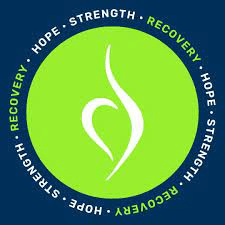
🔎
Their transparency & ratings:
Charity Navigator gives the National Eating Disorder Association a 3-star rating. GuideStar gives the charity a Silver Seal of Transparency.
“Feeding hope.”
National Eating Disorders Association
⚒️
What they do:
The National Eating Disorders Association combats eating disorders, including rumination disorder, through programs and services designed to support those affected in overcoming their illness. They offer resources to parents and caretakers to help them navigate their child’s eating disorder. For example, their free, downloadable Toolkits provide adults with important information on eating disorders and how to provide support. And, their website contains resources for recovery such as the Helpline, and access to an extensive list of treatment providers across the US. Furthermore, they host events such as NEDAWalk and NEDAwareness Week, which bring awareness and funding to the fight against eating disorders.
🚀
What they’ve achieved:
Since their founding, the National Eating Disorders Association has helped millions of people suffering from eating disorders, including rumination disorder, find the help and support they need. For example, in 2019 alone, their NEDAwareness Week campaign reached over 303.4 million people via social media, and more than 145,000 people completed the Eating Disorders Screening Tool. In the same year, they merged with the National Association for Men with Eating Disorders to support the 10 million males who suffer from eating disorders, including rumination disorder, and to reduce the stigmas that prevent men and boys from seeking help.
✨
Ways to contribute:
You can donate to the National Eating Disorders Association via their website. You can also get involved by participating in a NEDAWalk event in your community or becoming a group support facilitator for The Body Project.
International Foundation for Gastrointestinal Disorders: Digestive Health Matters

🔎
Their transparency & ratings:
Charity Navigator gives the International Foundation for Gastrointestinal Disorders a 4-star rating. GuideStar gives the charity a Platinum Seal of transparency.
“Our mission is to inform, assist, and support people affected by gastrointestinal (GI) disorders.”
International Foundation for Gastrointestinal Disorders
⚒️
What they do:
The International Foundation for Gastrointestinal Health improves the lives of those affected by gastrointestinal disorders, including rumination disorder, through education, advocacy, and research. For example, they provide comprehensive information on rumination disorder, including diagnostic criteria and how to deal with associated complications, like vitamin deficiency and dental damage. They also advocate for gastrointestinal patients by promoting policy change to better serve their needs and increasing public awareness. And, they fund research projects to improve diagnostic treatment options for gastrointestinal disorders.
🚀
What they’ve achieved:
Since their founding, the International Foundation for Gastrointestinal Disorders has offered 46 scientific awards and grants to nearly 50 scientists across the US and Europe to develop treatments for GI illnesses. Moreover, from 2008 to 2022, they funded $300,000 for 5 research projects from 9 research scholars and their teams. Furthermore, from 2016 to 2021, they partnered with 13 digestive institutions to reach 58 policymakers and advance GI federal funding. In addition, in 2022, they launched the Norton Education Series to equip people with chronic Gi illnesses with the education and resources to better navigate their lives, including those with rumination disorder.
✨
Ways to contribute:
You can donate to the International Foundation for Gastrointestinal Disorders on their website. You can also start a personal fundraiser or participate in their Virtual Awareness Events. In addition, you can become an advocate for GI patients.
Mental Health America: Action Before Crisis
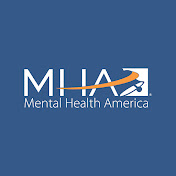
🔎
Their transparency & ratings:
Charity Navigator gives Mental Health America a 4-star rating. GuideStar gives the charity a Platinum Seal of transparency.
“Crisis is not a starting point.”
Mental Health America
⚒️
What they do:
Mental Health America promotes mental health and the prevention of mental illnesses, including rumination disorder, through advocacy, education, research, and integrative services. For example, through education and outreach, they help people of all ages better understand the prevention, early identification, and intervention of mental illnesses such as rumination and commonly co-occurring disorders. Moreover, their network of over 200 affiliates work with state and local policymakers to develop policies that promote mental health, including Medicaid expansion. They also provide clinically validated screens for mental illness that commonly occur with eating disorders via their MHA Screening program.
🚀
What they’ve achieved:
Since their founding, Mental Health America has educated millions of people about mental illness, including eating disorders such as rumination, and reduced barriers to treatment and services. For example, through their MHA Screening program, they have screened over 7.4 million individuals. Furthermore, in 2020 alone, their public education efforts reached more than 19 million people and they directly impacted 208,000 people suffering from mental health issues through their support services, including eating disorders.
✨
Ways to contribute:
You can donate to Mental Health America via their website. You can also get involved by joining their advocacy movement or creating your own fundraiser.
FEAST: Families Helping Families
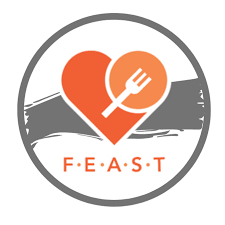
🔎
Their transparency & ratings:
GuideStar gives FEAST a Gold Seal of transparency.
“We are here because we’ve been there.”
FEAST
⚒️
What they do:
FEAST’s programs and services provide support, information, skills, and tools to families of eating disorders patients, including those with rumination disorder, as they fight the disease. For example, their FEAST 30 Days program is designed to educate and empower caregivers through one virtual lesson a day for 30 days. As another example, their Around the Dinner Table Forum provides parents with peer support through a moderated online discussion board. Furthermore, they supply parents with printable quick reference pamphlets on topics related to eating disorders, such as nutrition and neurobiology, through their FEAST Family Guides Series.
🚀
What they’ve achieved:
Since their founding, FEAST has supported over 10,000 families across 70 countries to help their loved ones navigate eating disorders, like rumination disorder. For example, in 2021, the Association provided education and resources on eating disorders to over 5,000 users through their website. In the same year, over 3,800 people registered for their FEAST 30 Days program, and over 2,800 people joined the Around the Dinner Table Forum and Facebook Community. Furthermore, they supported 1,200 parents and families affected by eating disorders, such as rumination disorder, through their parent support channels.
✨
Ways to contribute:
You can donate to FEAST via their website. You can also get involved by volunteering for a fundraising committee or as a technical specialist.
National Association of Anorexia Nervosa and Associated Disorders: Peer Support for Healing

🔎
Their transparency & ratings:
GuideStar gives the National Association of Anorexia and Associated Disorders a Silver Seal of Transparency.
“Eating disorder recovery is possible. ANAD is here to help.”
National Association of Anorexia Nervosa and Related Disorders
⚒️
What they do:
The National Association of Anorexia Nervosa and Associated Disorders helps individuals overcome rumination disorder through peer support services. Their network of volunteers is composed of eating disorder survivors who provide various levels of support to those still suffering. For instance, their Eating Disorder Helpline provides users with instant access to basic support, while their Recovery Mentor program pairs patients and volunteers one-on-one to provide more in-depth, long-term support. Additionally, their virtual peer support groups connect people with eating disorders with other sufferers to create a community of guidance and understanding.
🚀
What they’ve achieved:
Today, the National Association of Anorexia Nervosa and Associated Disorders serves over 200 people every week through their 11 virtual support groups, helpline, and mentorship program, including those with rumination disorder. They have also remained committed to supporting the needs of diverse communities that often lack the necessary resources they need to heal. For example, their peer support group program includes several special interest groups, including LGBTQ+, BIPOC, and teens and young adults. Furthermore, in 2021, they proposed a set of guidelines to promote inclusive care in treatment centers across the US.
✨
Ways to contribute:
You can donate to the National Association of Anorexia Nervosa and Associated Disorders via their website. You can also get involved by becoming a Helpline volunteer, Recovery Mentor, or Peer Support Group Leader.
How Can You Select the Best Charities to Support?
The charities on the list are, we deem, the best charities that combat rumination disorder. However, you may have a particular charity you want to support. Let’s look at what you can do to ensure your contribution has the most significant impact.
- Check out the charity website. Charities that are worthy of your donations are transparent in their mission and their figures. Familiarise yourself with their history, mission, and values. Their website usually is the best place to start.
- Identify the charity’s mission. Without a goal, the charity is likely to fail. If the charity’s mission isn’t clear, it’s probably worth looking for a charity that does have a clear mission.
- Check if the charity has measurable goals. An effective charity has clear goals. You want to know if your donation will help the charity reach its goals. But if it doesn’t have targets, it’s likely to fail or squander your gift. The charity should be able to account for its spending and supply evidence of the work they do.
- Assess the successes or goals the charity has achieved. You wouldn’t invest in a business if it kept missing its targets. In the same way, charities are like this too. If no one is assessing a charity’s progress in reaching its targets, the chances are they’re not making a substantial positive change.
- Check the charity’s financials and stats. Trustworthy organizations will publish financial statements and reports each year. Some might be exempt from having to do so, but they should be able to provide them to public members who are interested in donating.
- Locate sources who work with or benefit from the charity. Word of mouth and first-hand experience of a charity’s work lets you know the charity’s quality. If you’re able to do so, check out the charity for yourself or speak to someone familiar with it. This way, your donation will go to the right place.
How Can You Best Support These Charities?
After you’ve made your decision, it’s time for you to decide on how you’d like to help the charities you’ve chosen. Check how you can help – each charity runs specific programs that have unique aims. Find out what the aim of such programs is and whether they are right for you.
Here are a few ways you can help your chosen charity:
- Donate money. You can find donation pages on the website of most charities. Your donation can be a one-time payment, or you can set it to be deducted regularly at different intervals. You can mostly pay via credit card, but some charities also take PayPal or Bitcoin payments.
- Buy their official merchandise. Charities can also raise money by selling merchandise. So, you can support them by buying the mugs, shirts, caps, pens, pencils, and any other such items they may be selling. Ideally, you should buy as much as you can to share and spread the word about the charity’s activities.
- Engage in volunteer work. As you’ve seen from our descriptions above, some charities engage in a lot of local and grassroots programs. You can help by taking on and organizing the program in your local area.
- Help their fundraising efforts. You can spread the word about the charity in your workplace, school, church, etc., and hold creative fundraising drives on social media or offline within your small circles.
- Share their stories. Most charities have compelling stories that you can share with your audience to attract more people to the cause.
Final Thoughts
Now it is up to you to select the charity that resonates most with you. And whichever charity you end up choosing and contributing to, we are sure that they will immensely appreciate your support. Hopefully, the information within this article has made this selection process a bit easier for you to support charities dedicated to combatting rumination disorder – based on the causes that matter most to you.
Stay impactful,

PS: Finally, I want to leave you with a thought-provoking TED talk from Dan Pallotta, a leading philanthropic activist and fundraiser, about what is wrong with the way we think about charities – and what we can do about it:
Sources
- Guts UK: Rumination Syndrome
- Children’s Mercy Hospital: Home
- Children’s Mercy Hospital: About Us
- Charity Navigator: Children’s Mercy Hospital
- Children’s Mercy Hospital: Rumination Disorder Clinic
- Children’s Mercy Hospital: Research Institute
- Children’s Mercy Hospital: GI Connect Study
- Children’s Mercy Hospital: Continuing Education
- Children’s Mercy Hospital: Fast Facts
- Children’s Mercy Hospital: Genomic Answers For Kids
- Children’s Mercy Hospital: Donate
- Children’s Mercy Hospital: Volunteer
- Children’s Mercy Hospital: Fundraise for Kids
- National Alliance on Mental Illness: Home
- Charity Navigator: National Alliance on Mental Illness
- GuideStar: National Alliance on Mental Illness
- National Alliance on Mental Illness: Find your Local Affiliate
- National Alliance on Mental Illness: Family to Family
- National Alliance on Mental Illness: Providers
- National Alliance on Mental Illness: HelpLine
- National Alliance on Mental Illness: Mental Health Conditions Commonly Seen in Childhood
- National Alliance on Mental Illness: Eating Disorder Treatment
- National Alliance on Mental Illness: Eating Disorder Support
- National Alliance on Mental Illness: 2021 Annual Report
- National Alliance on Mental Illness: About
- National Alliance on Mental Illness: Donate
- National Alliance on Mental Illness: Get Involved
- National Alliance on Mental Illness: Volunteer
- Guts UK: Home
- Guts UK: What We Do
- Guts UK: Financial Statement
- Guts UK: Rumination Syndrome
- Guts UK: Current Research
- Guts UK: News and Events
- Guts UK: Research Impact
- Guts UK: Our History
- Guts UK: Donate
- Guts UK: Fundraise
- Guts UK: Shop
- Guts UK: Events
- Brain and Behavior Research Foundation: Home
- Brain and Behavior Research Foundation: About Us
- Charity Navigator: Brain and Behavior Research Foundation
- GuideStar: Brain and Behavior Research Foundation
- Brain and Behavior Research Foundation: Genetics and Eating Disorders
- Brain and Behavior Research Foundation: 2021 Annual Report
- Brain and Behavior Research Foundation: Eating Disorders
- Brain and Behavior Research Foundation: Brain Circuits and Eating Disorder Treatment
- Brain and Behavior Research Foundation: Donate
- Brain and Behavior Research Foundation: Team Up
- Brain and Behavior Research Foundation: Sponsorship
- National Eating Disorders Association: Home
- National Eating Disorders Association: Web Archive
- National Eating Disorders Association: Our Work
- Charity Navigator: National Eating Disorders Association
- GuideStar: National Eating Disorders Association
- National Eating Disorders Association: Toolkits
- National Eating Disorders Association: Helpline
- National Eating Disorders Association: Provider Map
- National Eating Disorders Association: NEDAWalk
- National Eating Disorders Association: NEDAwareness Week
- National Eating Disorders Association: 2019 Annual Report
- National Eating Disorders Association: Merger Press Release
- National Eating Disorders Association: Donate
- National Eating Disorders Association: The Body Project
- International Foundation for Gastrointestinal Disorders: Home
- Charity Navigator: International Foundation for Gastrointestinal Disorders
- GuideStar: International Foundation for Gastrointestinal Disorders
- International Foundation for Gastrointestinal Disorders: Rumination Syndrome
- International Foundation for Gastrointestinal Disorders: Advocate for Digestive Health
- International Foundation for Gastrointestinal Disorders: Research Awards
- International Foundation for Gastrointestinal Disorders: Research Grants
- International Foundation for Gastrointestinal Disorders: Norton Education Series
- International Foundation for Gastrointestinal Disorders: Donate
- International Foundation for Gastrointestinal Disorders: Fundraise
- International Foundation for Gastrointestinal Disorders: Events
- Mental Health America: Home
- Mental Health America: About
- Charity Navigator: Mental Health America
- GuideStar: Mental Health America
- Mental Health America: B4Stage4
- Mental Health America: Education and Outreach
- Mental Health America: Advocacy Network
- Mental Health America: Public Policy
- Mental Health America: Center for Peer Support
- Mental Health America: Peer Partners
- Mental Health America: Become a Peer Support Specialist
- Mental Health America: Our History
- Mental Health America: 2020 Annual Report
- Mental Health America: Fundraise
- FEAST: Home
- FEAST: History
- GuideStar: FEAST
- FEAST: FEAST 30 Days
- FEAST: Around the Dinner Table Forum
- FEAST: Nutrition Guide
- FEAST: Neurobiology
- FEAST: Family Guide Series
- FEAST: 2021 Annual Report
- FEAST: Donate
- FEAST: Volunteer
- National Association of Anorexia Nervosa and Associated Disorders: Home
- GuideStar: National Association of Anorexia Nervosa and Associated Disorders
- National Association of Anorexia Nervosa and Associated Disorders: Helpline
- National Association of Anorexia Nervosa and Associated Disorders: Recovery Mentors
- National Association of Anorexia Nervosa and Associated Disorders: Support Groups
- National Association of Anorexia Nervosa and Associated Disorders: Support at Every Stage
- WCPO: National Association of Anorexia Nervosa and Associated Disorders
- National Association of Anorexia Nervosa and Associated Disorders: Donate
- National Association of Anorexia Nervosa and Associated Disorders: Volunteer
- National Association of Anorexia Nervosa and Associated Disorders: Recovery Mentor
- National Association of Anorexia Nervosa and Associated Disorders: Lead a Support Group

